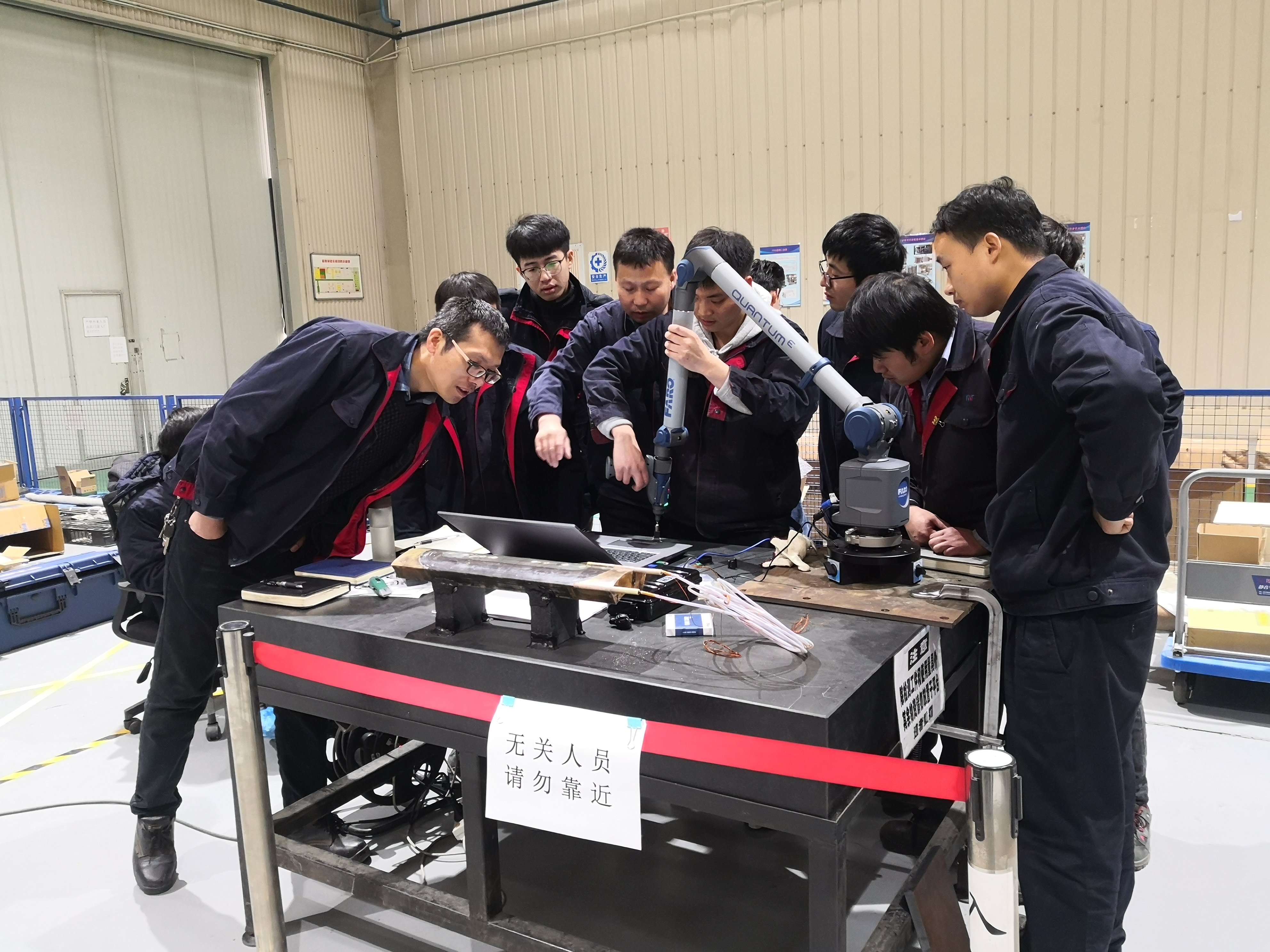Xi'an pools foreign wisdom to build a high-standard pilot FTZ
- By Zhu Bochen
 0 Comment(s)
0 Comment(s) Print
Print E-mail China.org.cn, March 31, 2021
E-mail China.org.cn, March 31, 2021

Northwest China's Xi'an city has been drawing on advanced experience from the rest of the world to facilitate investment, improve its business environment, and develop hardcore technologies, in a bid to build a high-standard pilot Free Trade Zone (FTZ).
Over the years, both policymakers and sci-tech enterprises in the city have worked to promote Chinese talents to go global, while also continuously providing better living and workplace services for foreign expatriates domestically.
The efforts officially kicked off on March 15, 2017, when the State Council issued a circular on the overall plan to establish a pilot FTZ in the inland province of Shaanxi.
As a pivot of the Belt and Road Initiative (BRI) and China's project for large-scale development of its western region, Xi'an was thus offered an opportunity to implement a significant policy overhaul geared toward reform and opening-up.
According to the circular, Xi'an was tasked with creating a pilot zone within three to five years which met international rules of trade and investment. Meanwhile, a convenient and globalized business environment that upholds the rule of law should be fostered. So far, Xi'an has made steady progress in these fields thanks to the joint efforts between the city's governing bodies and high-tech businesses.
Learning from the experienced
To help promote institutional innovation within Xi'an's pilot FTZ, a group of government officials traveled to the U.S. in October 2019, and learned from the successful practices of similar enterprises in New York and California, said Li Qungang, an official with the city's commerce bureau.
Li told China.org.cn that the trip was an eye-opening experience and helped his colleagues find theoretical references for a high-standard FTZ.
"Our colleagues learned about market access, management ideals, operation models, supervision methods, as well as the tax policies of FTZs in the U.S.," Li said. "We also got to know some of their unique practices in building a law-based business environment, global finance centers, and sci-tech innovation."
Nowadays, a series of reform policies have been rolled out in Xi'an's pilot FTZ. For example, it has implemented a system for managing foreign investment based on pre-established national treatment and a negative list. Global trade in the pilot FTZ has been further facilitated by building platforms for cross-border e-commerce and business related to RMB settlement. The city has also promoted facilitation in its finance service sector by simplifying bank procedures and inputting companies' taxation information into a big data platform.
In addition, Xi'an has given full play to its pivotal role of the BRI in terms of economic cooperation and people-to-people exchange. It has increased industrial-capacity cooperation with European countries by attracting more investment from enterprises such as Bosch Global, BMW, and Alstom. It has strengthened connectivity with countries along the BRI route via China-Europe freight trains. The city also accelerated its efforts to build a national export base for culture.
As of the end of 2020, Xi'an's pilot FTZ has attracted a total of 55,662 new market entities, with registered capital reaching 693.692 billion yuan. This includes 40,218 enterprises whose registered capital totals 591.785 billion yuan. Among which, 431 are foreign-invested.
Foreign expatriates in Xi'an
As Xi'an upholds the vital role of innovation in its high-standard FTZ drive, a number of high-tech enterprises and startups have thrived over the years to build the city's capacity as a potential world-leading sci-tech hub.
This requires more talents in core technologies. The government and related companies in the city have been doing their best to provide a comfortable living environment and adaptable workplace, especially for foreign expatriates.
Speaking about his experience of working in Xi'an, a French engineer with Xi'an Superconducting Magnet Technology Co.,Ltd. said that he found people in the city very friendly toward immigrants. He also spoke highly of the city's epidemic prevention and control efforts from the very early outbreak.
In terms of career development, he believes that working as a computer simulation engineer in WST is ideal for him as the company has now become one of the biggest R&D centers for titanium and its related materials in China.
A British machinist with the company also shed light on why he chose to work and live in China. "I love the architecture in China, and I appreciate how serious Chinese people are regarding education," he told China.org.cn. "I find myself surrounded by advanced technologies when I need anything in my daily life, such as WeChat, fast delivery, and the high-speed railway, and this is just brilliant."
"Personally, I also think China is now the world's safest place to live," he added.






Go to Forum >>0 Comment(s)